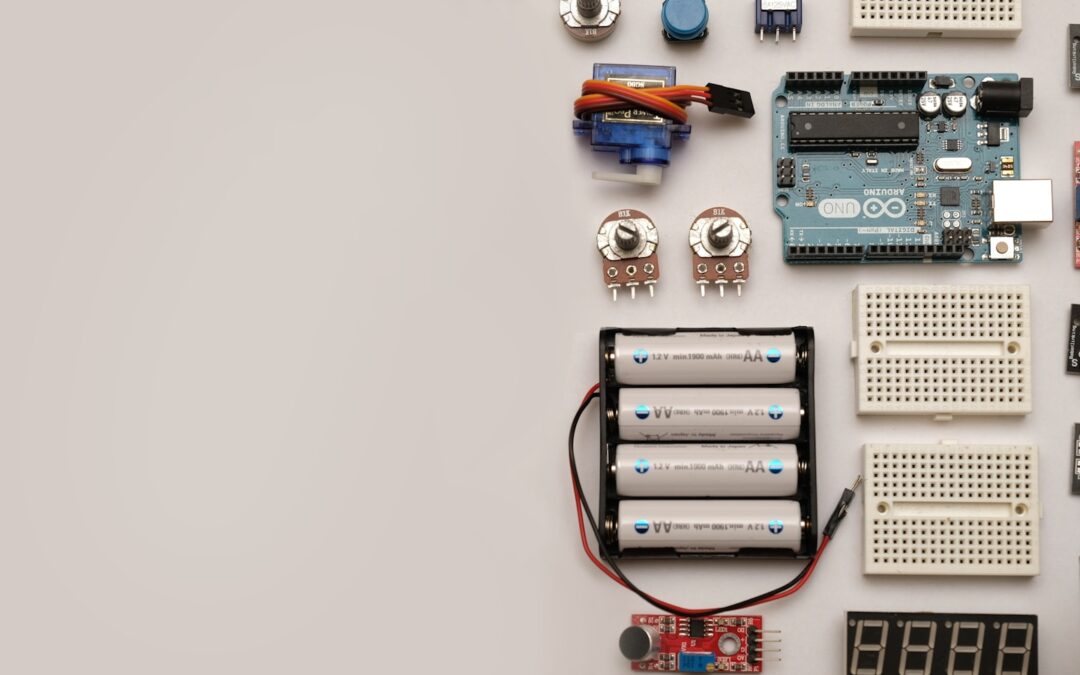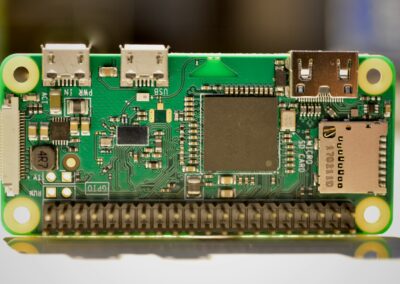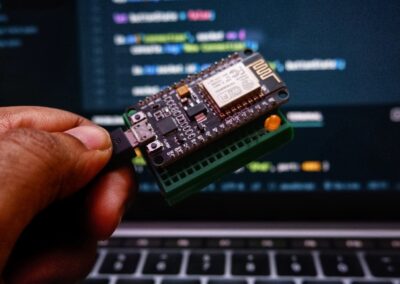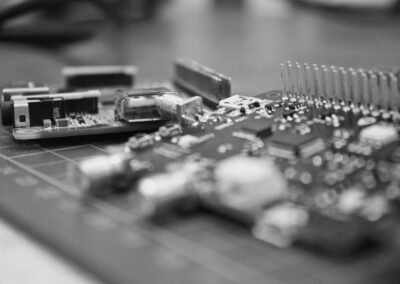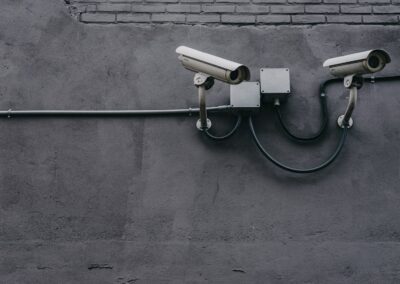The Importance of Ethical IoT Practices in Modern Technology
Understanding the Ethical Implications of IoT
The role of ethical IoT practices is becoming increasingly significant as the Internet of Things (IoT) continues to expand, integrating into various aspects of daily life and business operations. In regions like Saudi Arabia and the UAE, where technological innovation is a key driver of economic growth, the implementation of ethical IoT practices is essential to ensure that IoT solutions prioritize user privacy and security. IoT refers to the network of connected devices that collect, share, and analyze data to provide smarter solutions and improved user experiences.
However, the vast amount of data generated by IoT devices poses significant ethical challenges. These challenges include the potential for data breaches, unauthorized access, and misuse of personal information. Without robust ethical practices, the rapid adoption of IoT technologies could compromise user privacy and security, leading to a loss of trust among consumers and businesses. In cities like Riyadh and Dubai, where IoT is transforming industries, ensuring ethical practices is crucial for sustainable technological advancement.
Ethical IoT practices involve designing and implementing IoT solutions that prioritize transparency, user consent, and data protection. This means that organizations must be transparent about their data collection and usage policies, obtain explicit consent from users before collecting data, and implement stringent security measures to protect the data. By adhering to these principles, businesses can ensure that their IoT solutions are both innovative and respectful of user privacy.
Promoting User Privacy Through Ethical IoT Practices
Promoting user privacy is a core component of ethical IoT practices. In Saudi Arabia and the UAE, where digital engagement is high, businesses must ensure that their IoT solutions are designed with privacy in mind. This involves implementing data minimization techniques, where only the necessary data is collected and retained for a specific purpose. By reducing the amount of data collected, organizations can minimize the risk of data breaches and unauthorized access.
One effective approach to promoting user privacy is the use of encryption and secure data storage methods. Encryption ensures that data transmitted between IoT devices and servers is protected from interception and tampering. Additionally, secure data storage methods prevent unauthorized access to stored data, ensuring that user information remains confidential. In Riyadh and Dubai, where IoT applications are becoming increasingly prevalent, implementing these security measures is crucial for maintaining user trust.
Moreover, ethical IoT practices require organizations to provide users with control over their data. This includes allowing users to access, modify, and delete their personal information. By giving users control over their data, businesses can enhance transparency and build trust. In Saudi Arabia and the UAE, where regulatory frameworks for data protection are evolving, empowering users to manage their data is an important step towards ethical IoT practices.
Ensuring Security in IoT Solutions
Ensuring security in IoT solutions is paramount to protect user data and maintain the integrity of IoT systems. In Saudi Arabia and the UAE, where smart cities and digital infrastructures are rapidly developing, robust security measures are essential to safeguard against cyber threats. Ethical IoT practices involve implementing comprehensive security protocols that address potential vulnerabilities and protect IoT devices and networks from attacks.
One key aspect of IoT security is the regular updating and patching of software and firmware. IoT devices often have long lifecycles, making them susceptible to security vulnerabilities if not regularly updated. By implementing automatic updates and security patches, organizations can protect IoT devices from known threats and ensure that they remain secure over time. In Riyadh and Dubai, where smart city initiatives are advancing, maintaining up-to-date IoT systems is critical for overall security.
Another important security measure is the use of strong authentication and access control mechanisms. These mechanisms ensure that only authorized users and devices can access IoT systems and data. Multi-factor authentication (MFA) and role-based access control (RBAC) are effective methods for enhancing security and preventing unauthorized access. In regions like Saudi Arabia and the UAE, where IoT applications are widely used in various sectors, implementing strong authentication and access controls is essential for protecting user data.
The Impact of Ethical IoT Practices on Business Success
Building Trust and Enhancing Reputation
Adhering to ethical IoT practices can significantly enhance business success by building trust and enhancing reputation. In Saudi Arabia and the UAE, where consumers and stakeholders are increasingly aware of privacy and security issues, businesses that prioritize ethical IoT practices can differentiate themselves in the market. By demonstrating a commitment to user privacy and security, companies can foster stronger relationships with customers, partners, and regulators.
Trust is a critical component of business success, especially in the digital age. When customers feel confident that their data is protected and used ethically, they are more likely to engage with the business and share their information. This trust translates into increased customer loyalty and retention, which are vital for long-term growth and success. In regions like Riyadh and Dubai, where digital engagement is high, businesses that invest in ethical IoT practices can attract and retain a loyal customer base, ultimately driving growth and success.
Furthermore, compliance with ethical IoT practices can open up new business opportunities. By adhering to international data protection standards, businesses can expand their operations globally and attract customers from regions with stringent privacy laws. In Saudi Arabia and the UAE, where the digital economy is rapidly evolving, businesses that prioritize ethical IoT practices can position themselves as leaders in the global market.
Leadership and Strategic Implementation of Ethical IoT
Effective leadership is crucial for the strategic implementation of ethical IoT practices within organizations. Leaders in Saudi Arabia and the UAE must prioritize ethical IoT as an integral component of their business strategy. Executive coaching services can help leaders develop the skills and knowledge needed to navigate the complexities of IoT ethics and implement effective privacy and security measures.
Leadership in ethical IoT involves setting clear policies and guidelines, providing regular training to employees, and fostering a culture of accountability and transparency. By establishing a strong governance framework, leaders can ensure that ethical IoT practices are integrated into all aspects of the organization. In Riyadh and Dubai, proactive leadership in IoT ethics can mitigate risks, enhance organizational resilience, and build trust with stakeholders.
Moreover, leaders can advocate for industry-wide best practices and collaborate with regulatory bodies to shape IoT ethics policies. In Saudi Arabia and the UAE, where collaboration is essential for addressing complex challenges, leaders can play a pivotal role in driving the adoption of ethical IoT standards. By working together, businesses, government agencies, and industry associations can create a robust IoT ethics ecosystem that supports innovation and protects user privacy.
Conclusion: The Future of Ethical IoT Practices
Ethical IoT practices play a crucial role in promoting user privacy and security in IoT solutions. In Saudi Arabia and the UAE, where digital engagement and technological innovation are rapidly advancing, these practices provide a framework for ethical IoT development that enhances user trust and business success. By implementing robust privacy and security measures and fostering a culture of accountability, businesses can ensure compliance with ethical standards and build a strong foundation for sustainable growth.
As IoT technology continues to evolve, the future of ethical IoT practices will require ongoing collaboration and adaptation. By staying informed about regulatory developments and embracing best practices, organizations can navigate the complexities of IoT ethics and ensure that their IoT solutions operate fairly and responsibly. Through effective leadership and a commitment to ethical IoT, businesses in Saudi Arabia and the UAE can achieve long-term success and drive responsible technological advancement.
—
#EthicalIoTPractices #IoTSecurity #UserPrivacy #AI #InternetofThings #Blockchain #TheMetaverse #ExecutiveCoaching #LeadershipSkills #BusinessSuccess #ModernTechnology

